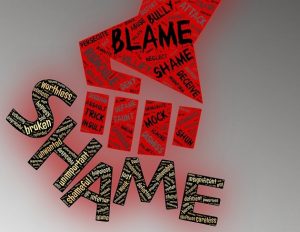
We All Lose When We Don’t Allow People to Change
I grew up in the 1960s and 1970s with protests, boycotts and strikes. The purpose for these activities is to effect change. And they often work. People, corporations, and governments do make changes and find alternative ways of functioning that everyone can agree on.
But Cancel Culture has removed the incentive for learning, and growing, and change. Worse, it makes ideas outside the current norm to be un-shareable. It is censorship in a meme.
We humans love public executions, and Cancel Culture has allowed social and mainstream media to conduct world-wide lynchings. I use that word advisedly, for there is no longer any investigation, no judicial inquiry, no chance for a defense. No, once offense is taken — given or not — the rallying cry goes out, and the crowd cries for blood. Reputations, livelihoods, and lives are destroyed to quench the bloodlust. There is no justice in this. Cancel Culture is no different than telling a rape victim that she asked for it because her skirt was short. “You should have known,” the preachers of Cancel Culture say.
But that’s simply not true.
When I was in Junior High and High School, my friend Gordy carried his own asthma rescue inhaler. I had my own aspirin bottle in my locker for cramps and a pocketknife in my jeans or purse. I was taught to be prepared, like a good little Girl Scout, and used the knife frequently in my TV class to fix cords and splice tape. That was normal. These days, we’d both be expelled, and I’d probably be charged for weapons possession. Things change. We can debate whether it’s better or worse now, but it is different. Cancel Culture wants the past judged by today. It’s a false comparison.
Cancel Culture refuses to see anything but black and white. Right versus Wrong. Yet the world is full of grays. Say two teen-age couples in the same church have unprotected sex. One woman gets pregnant, but the other does not. Is the first couple more “sinful” than the other? Of course not! But because the consequence of one couple’s actions is visible, they will be treated differently than the other pair. And here is where the underlying hypocrisy of Cancel Culture can be found.

Cancel Culture is built on the shaky foundation of what someone has seen, heard, or felt someone else do. But words are tricky things. Perceptions are even trickier. We now know that eye-witness testimony is often flawed, because people tend to see what they expect to see, or what their brain interprets to the best of its ability.
For example, a common disagreement between me and my husband is over colors. He sees red and maroon. I see rose, cherry red, dark red, maroon, and burgundy. I’ll remember something as blue, he’ll say it was green. We have different perceptions of colors. More to the point, I’ll ask him a question while he’s working on a project, and he’ll snap back at me, totally out of proportion to the question. He’s not mad at me. He’s frustrated with the project, and it comes out in his tone of voice. I’ve learned to let it slide, because I’ve been accused of doing the same thing when I’m concentrating on something. Perceptions are often different.
Cancel Culture assumes the accusers are better than the accused. But no one is without fault. Even Mother Teresa had her detractors. We are not perfect. I’m not. You’re not. We’ve all messed up. Just because Tom’s mistake is on record and Jim’s isn’t, doesn’t make Jim any better or worse than Tom. Cancel Culture thrives on vilification, not justice.
Finally, Cancel Culture wants to tear down, destroy, and wipe the offender off the face of the earth. There is no room for ignorance or age, naïveté or nuance. No one is allowed to grow or learn from mistakes. Instead, a careless moment of 40 years ago is trotted out as if it happened yesterday. Standards and norms of the 21st century are unjustly applied to earlier ones. To say, for example, that all medical doctors today are quacks, because their predecessors used leeches to treat almost everything, is to ignore two centuries worth of improvement in health and life expectancy.
We all make mistakes. The idea is to learn from them and become better people, to benefit ourselves and our societies as we learn and grow. So, let’s get rid of Cancel Culture, step out of the bully pulpits where we hide from reality, and start talking with — not at — one another. Flawed human to flawed human.
Here’s an example of why this is so important.
There was a man, I’ll call him John. Born into a seafaring family, he spent most of his first 30 years on the sea. During that time, he sailed in service to his country, helped transport slaves, and was even enslaved in Africa himself, before being rescued and returning to that trade. Notorious for his language and behavior, John began a slow conversion to Christianity after a particular storm, but he didn’t leave the slaving business for several years. He eventually became an Anglican priest and wrote 280 hymns for his church services. It wasn’t until 34 years after actively leaving the slave trade that John publicly renounced his involvement in the trade and pressed for its abolishment. He saw the English civil government outlaw slavery in Great Britain in 1807, shortly before his death.
- Cancel Culture would say this man should be wiped from our history books.
- Cancel Culture would condemn him for his slaving days and ignore his influence in the abolitionist movement.
- Cancel Culture would seek to destroy the hymns he wrote, not only ignoring but denigrating the works as unworthy, because he had been a slaver in his younger days.
- Cancel Culture would deprive us, here and now, of one man’s hard-earned wisdom in perhaps the most recognized hymn in American society.
- Cancel Culture would silence one of the most beloved, powerful, and bridgebuilding songs in our contentious history. Without John Norton, we wouldn’t have “Amazing Grace”. (Lyrics below.)
We need each other, broken and imperfect as we are, to learn from, to grow with, to share Grace with.
Grace, Peace and Hugs to You!
Amazing grace, how sweet the sound
That saved a wretch like me
I once was lost, but now I am found
Was blind, but now I see
‘Twas grace that taught my heart to fear
And grace my fears relieved
How precious did that grace appear
The hour I first believed
Through many dangers, toils and snares
We have already come
'Twas grace has brought us safe thus far
And grace will lead us home
When we’ve been there ten thousand years
Bright, shining as the sun
We've no less days to sing God's praise
Than when we've first begun
Amazing grace, how sweet the sound
That saved a wretch like me
I once was lost, but now I am found
Was blind, but now I see
(John Norton, 1772)